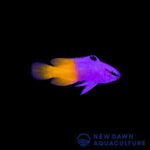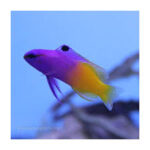The Fusion of Dragons and Spiritual Elements in Chinese Culture
The dragon (龙, lóng) is one of the most revered symbols in Chinese culture, representing power, wisdom, prosperity, and cosmic balance. More than just a mythological creature, the dragon is deeply intertwined with spiritual elements, shaping religious beliefs, Daoist cosmology, Feng Shui principles, and traditional rituals. Its presence in Chinese spirituality extends beyond art and literature, influencing temples, ceremonies, dreams, and moral philosophies.
This article explores the spiritual significance of dragons in Chinese culture, highlighting their connection to cosmic forces, divine entities, religious practices, and metaphysical elements.
1. The Dragon as a Cosmic and Spiritual Force
In Chinese cosmology, dragons are not just mythical beings but cosmic forces that govern natural elements, celestial cycles, and spiritual realms.
1.1 The Dragon and the Five Elements (五行, Wǔxíng)
According to traditional Chinese metaphysics, dragons are connected to the Five Elements:
- Wood (木, Mù): Symbolizes growth and vitality; the Azure Dragon (青龙, Qīnglóng) is associated with this element.
- Fire (火, Huǒ): Represents passion and transformation; dragon symbols are often seen in temples and rituals related to protection.
- Earth (土, Tǔ): Associated with stability and balance, linking dragons to mountains and sacred sites.
- Metal (金, Jīn): Symbolizes strength and authority, often seen in imperial dragon thrones.
- Water (水, Shuǐ): Represents fluidity and wisdom, making dragons the masters of rivers, lakes, and rain.
1.2 The Celestial Dragons and Their Spiritual Roles
- Tianlong (天龙, Tiānlóng) – The Heavenly Dragon: Protects divine palaces and Buddhist scriptures.
- Shenlong (神龙, Shénlóng) – The Spiritual Dragon: Controls rain and clouds, influencing agricultural prosperity.
- Fucanglong (伏藏龙, Fúcánglóng) – The Hidden Treasure Dragon: Guards sacred knowledge and mystical relics.
- Dilong (地龙, Dìlóng) – The Earth Dragon: Governs rivers and underground energy channels.
These dragons serve as spiritual intermediaries, linking the heavens, earth, and human world.
2. Dragons in Daoism and Buddhist Spirituality
Dragons play a significant role in Daoist and Buddhist traditions, acting as protectors, celestial beings, and symbols of spiritual transformation.
2.1 Daoism: The Dragon as the Essence of Qi (气, Qì)
- In Daoist philosophy, the dragon represents the flow of energy (Qi) in the universe.
- The Azure Dragon (青龙, Qīnglóng) is one of the Four Sacred Beasts that guard cosmic directions and balance Yin and Yang.
- Daoist priests often invoke dragon spirits in rituals to harmonize nature and ward off evil forces.
2.2 Buddhism: Dragons as Dharma Protectors
- Dragons appear in Buddhist scriptures as defenders of the faith and guardians of sacred texts.
- The story of Nāgarāja (龙王, Lóngwáng), the Dragon King, describes him as a protector of Buddhist relics.
- Dragon motifs are common in Buddhist temples, especially in roof carvings and murals.
3. The Dragon’s Influence in Feng Shui and Spiritual Architecture
3.1 The Dragon Vein Theory (龙脉, Lóngmài)
- In Feng Shui, dragons are linked to the concept of dragon veins, referring to energy lines flowing through landscapes.
- Architects design temples, palaces, and tombs in harmony with dragon veins to ensure prosperity and spiritual alignment.
3.2 Dragon Statues and Spirit Protection
- Temple guardians: Dragon statues are placed at entrances of temples, shrines, and sacred sites to ward off evil spirits.
- Pagodas and Bridges: Many ancient bridges and towers have dragon carvings to symbolize divine protection.
3.3 The Dragon Dance and Spiritual Energy
- During Chinese New Year and religious festivals, the dragon dance is performed to chase away negative spirits and invite blessings.
- The movement of the dragon in the dance mirrors the flow of cosmic energy (Qi), reinforcing spiritual balance.
4. Dragons in Dreams, Divination, and Spiritual Transformation
Dragons are considered powerful omens in Chinese dream interpretation, fortune-telling, and spiritual growth.
4.1 Dreaming of Dragons: Messages from the Divine
- Dreaming of a golden dragon symbolizes great fortune and divine favor.
- A flying dragon represents spiritual ascension or enlightenment.
- A sleeping dragon may indicate hidden potential or inner power.
4.2 The Dragon as a Guide in Daoist Alchemy
- In Daoist internal alchemy, the dragon represents the rise of energy through the spine (kundalini-like awakening).
- Many meditation practices visualize a dragon ascending as a metaphor for spiritual enlightenment.
5. The Moral and Ethical Teachings of Dragons
5.1 The Dragon as a Symbol of Wisdom and Honor
- Confucian scholars often compared wise rulers to dragons, emphasizing moral integrity and leadership.
- The saying “望子成龙” (wàng zǐ chéng lóng) translates to “hoping one’s son becomes a dragon”, symbolizing great achievements through wisdom and virtue.
5.2 The Dual Nature of Dragons: Power vs. Balance
- While dragons are often benevolent, they can also become destructive if misused.
- Stories such as “The Dragon Slayer” teach lessons about ambition and responsibility.
6. Modern Spiritual Practices Involving Dragons
6.1 Dragon Symbolism in Martial Arts and Qi Gong
- Many martial arts styles (e.g., Dragon Style Kung Fu) incorporate dragon-like movements to channel inner strength and flexibility.
- Qi Gong (气功) practitioners visualize dragon energy to enhance health and spiritual awareness.
6.2 Dragon-Inspired Meditation and Healing
- Some modern spiritual practitioners use dragon meditation techniques to balance Yin and Yang energies.
- Dragon-inspired Reiki and energy healing focus on channeling protective and transformative energies.
Conclusion
The dragon in Chinese culture is more than just a mythical creature—it is a spiritual guide, protector, and cosmic force. From Daoist Qi energy and Buddhist deities to Feng Shui principles and moral teachings, dragons play an essential role in shaping Chinese spiritual traditions. Even in modern times, their presence in meditation, martial arts, and energy healing continues to inspire those seeking balance, wisdom, and transformation.
In every aspect of Chinese spiritual life, the dragon remains a timeless symbol of power, harmony, and enlightenment.



